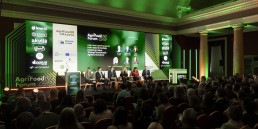The largest international AgriFood Forum 2023 in the Baltic States has come to an end. This year’s event was unique for its broadest concept and impact, the largest delegation of extraordinary speakers, and additional events. The ambition to bring the Forum up to date for all related industries was reflected in the programme, which took place in four halls of Vilnius Town Hall, where over 60 Lithuanian and foreign experts shared their insights. Around 250 forum participants expressed their interest in engaging in meaningful discussions and valuable networking, while more than 2000 people from different countries watched the live streaming of the event.
The opening served as a reminder of the importance of joint efforts
The fifth AgriFood Forum was launched with a welcome speech by the Commissioner for Agriculture, Janusz Wojciechowski. The representative of the sector’s most important policymaker highlighted the priority of actively supporting the development of rural areas and the empowerment of the communities living there, which will ensure the sustainable growth of the European Union. He also welcomed the cross-institutional, cross-disciplinary focus on finding innovative solutions for the future. In the view of both the European Commission and major networks such as EIT Food and Business at OECD, partnerships remain a key factor in achieving real change.
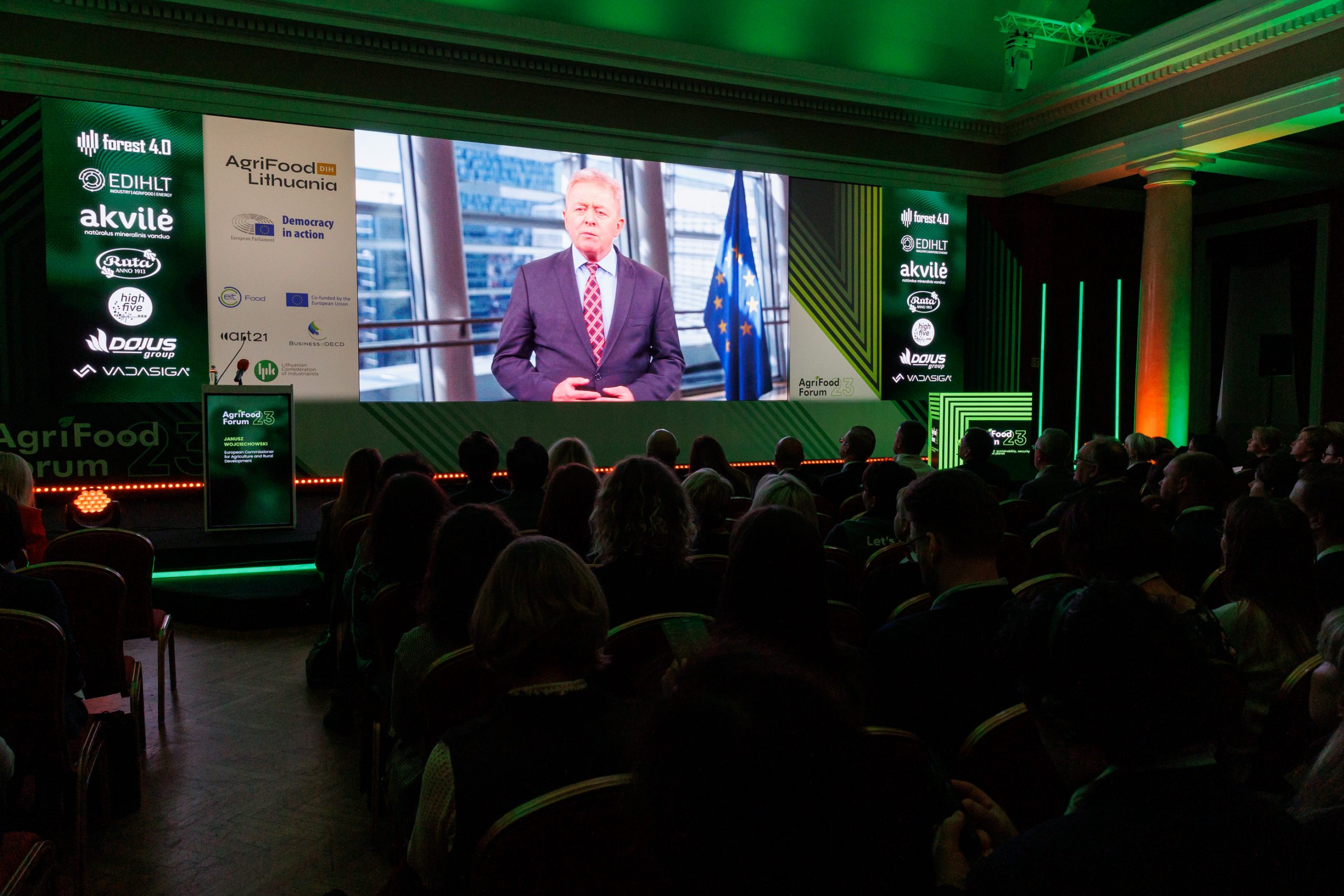
Metin Akman, Chair of Business at OECD’s Food and Agriculture Committee, recalled that AgriFood Forum 2023 echoes the mission of the global Peace for Food initiative launched last year, which focuses on tackling the multi-layered crisis affecting food supply and demand: “Together, we can feed the world, build sustainable food supply chains, and ensure food security,” he said.
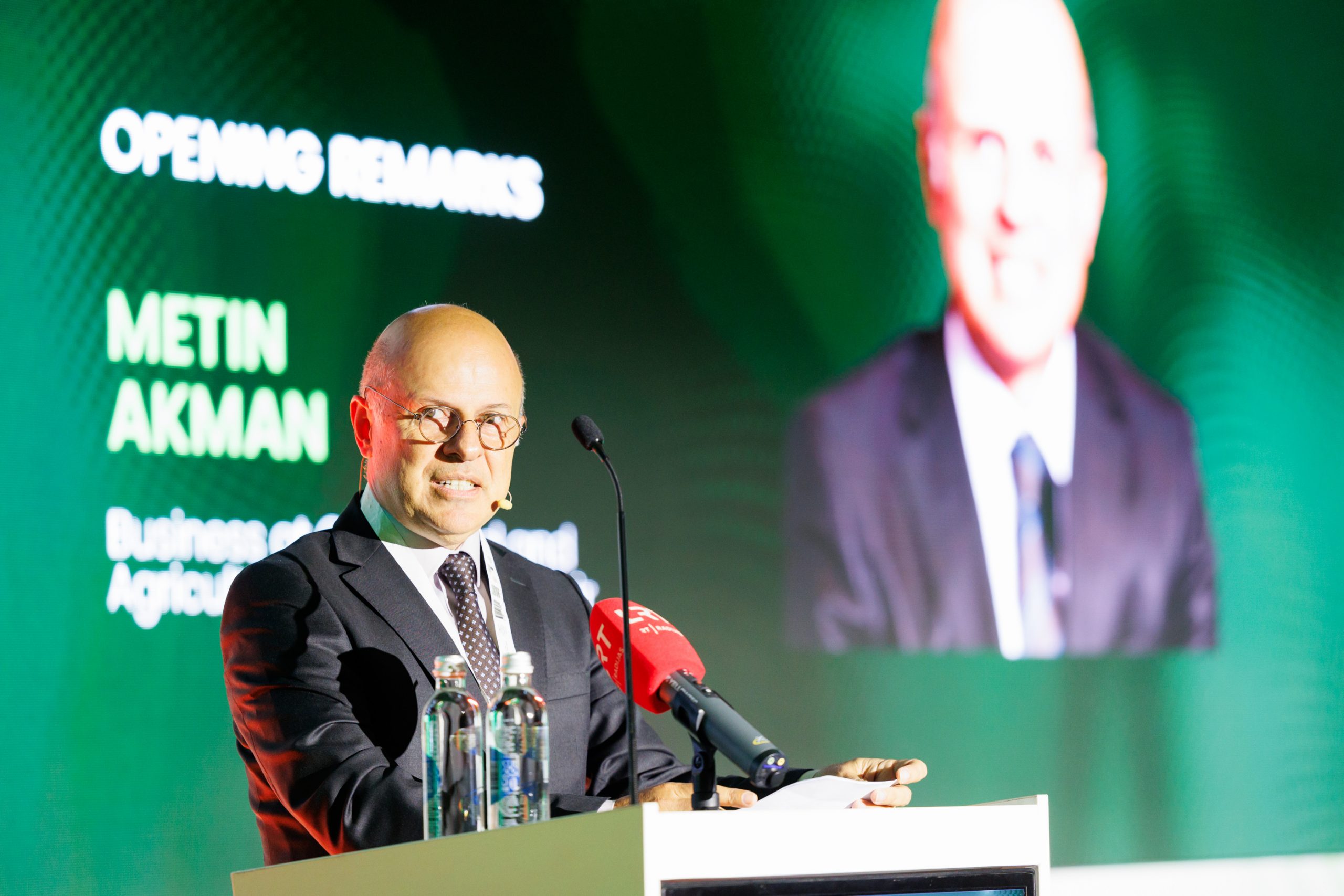
Dr. Andy Zinga, CEO of EIT Food, looked back at agriculture as a key human invention that has become the driving force behind the growth of civilizations. Early innovations such as food drying, pasteurization, and fermentation have opened up new routes for the exchange of food, and this required collaboration and trust.
“This is also the basis for today’s mission to build resilience in food systems threatened by wars and ecological disasters. A sustainable food industry can indeed lead to equitable transformation, but it needs a systemic approach and a joint effort in project development. Developing innovations always carries some risk of failure; it is the trust between consortia and the open exchange of knowledge that allows learning, not being afraid to make mistakes, and discovering solutions that make a real impact,” emphasized Dr. Andy Zynga.
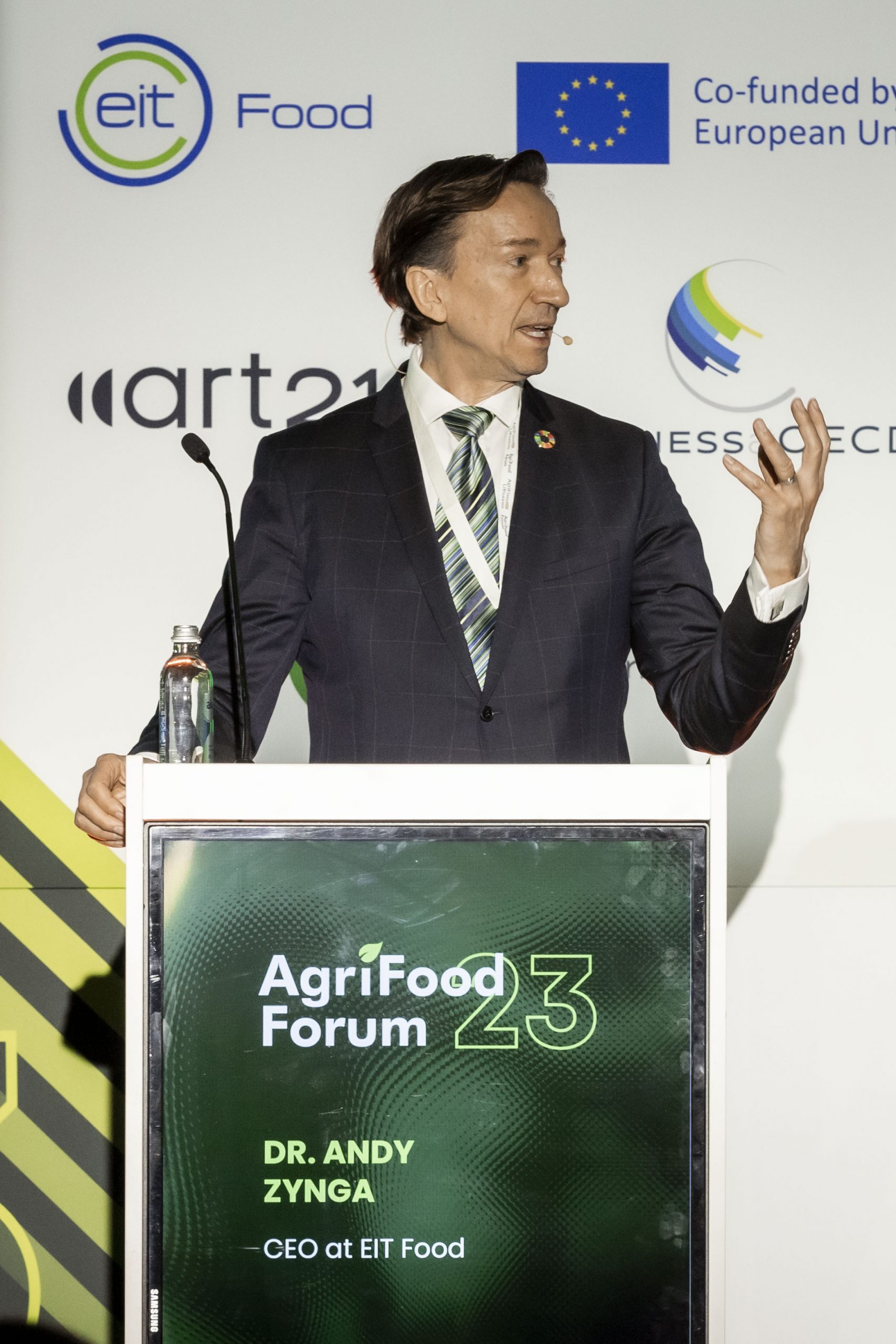
According to Simonas Gentvilas, Minister of Environment of the Republic of Lithuania, agriculture and food systems are some of the most vulnerable when it comes to the direct consequences of climate change extremes, and it is the agri-food sector players who are in the first line of action to address the challenges. This includes food security in areas that will be uninhabitable in the future, whether due to desertification, harmful emissions, or declining infrastructure.
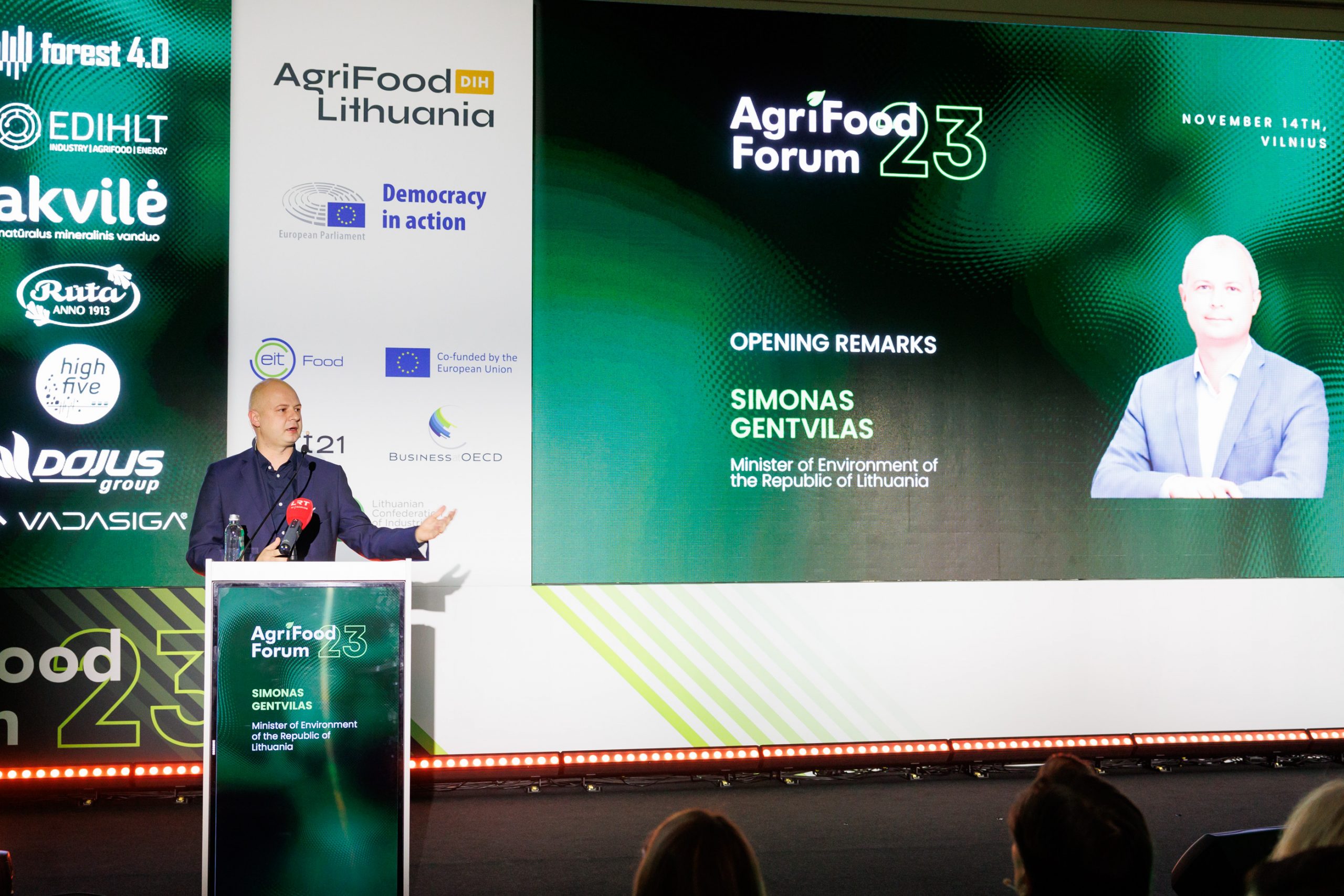
Revealed the real idea behind the theme of the event
The opening high-level panel discussion gave impetus to the fruitfulness of the AgriFood Forum 2023. In addition to the CEO of EIT Food, President of the Lithuanian Confederation of Industrialists Vidmantas Janulevičius also took part in the discussion, as did Kristina Šermukšnytė-Alešiūnienė, CEO of AgriFood Lithuania, the cluster and digital innovation hub organizing the event together with partners. Julia Nielson, Deputy Director of the OECD Directorate for Trade and Agriculture, and Vytenis Tomkus, Vice-Minister at the Ministry of Agriculture of the Republic of Lithuania, also shared their insights.
Looking for both direct and indirect ways to ensure stability in the world, the experts explored the links between food, peace, and security. Through real examples of sustainable farming practices and supply chain optimization, they analyzed trends in the sector and stressed the value of national and global communion in sharing knowledge, resources, and best practices. Building the framework of the 2040 vision and taking a critical look at potential new barriers to achieving the goals of a resilient tomorrow were not left untouched.
“Despite the official theme of this year’s Forum, the future was at the heart of the event, and it is not a reality without communion and networking. While I sincerely believe that the event, which has become an increasingly important tradition, generates valuable new partnerships every year, we should not forget that it is not just about talking. It is only by taking action that we can change the way we and society think and create a better world. That is why we plan to prepare a thorough policy paper after the forum, capturing the practical recommendations we have developed this year on the way forward. And of course, I would like to thank all those who have helped to take a bigger than ever step towards a common future: the insightful speakers and dynamic panelists, the engaging audience, and the organizing team,” said K. Šermukšnytė-Alešiūnienė.
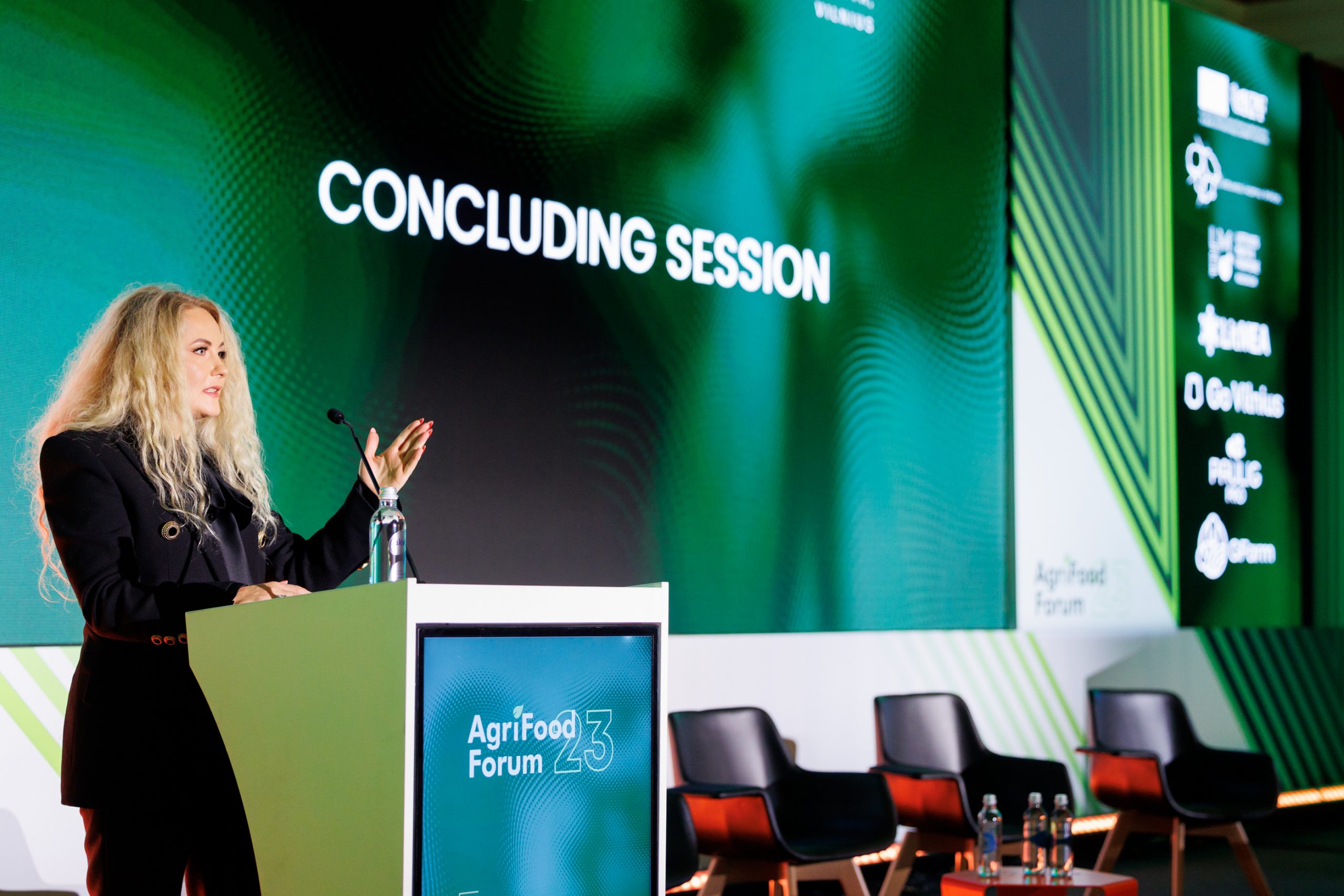
The AgriFood Forum 2023 and the growing collective responsibility to improve the situation on the planet were marked by a symbolic gesture. Together with Life Terra, one of Europe’s most active climate change initiatives, and other partners, 300 birch trees were planted in Pavilnys before the event. On the day before the forum, Business at OECD also held an official meeting of the Food and Agriculture Committee. This was the first time that its representatives, who usually hold their meetings at the organization’s headquarters in Paris, had gathered in Lithuania. Until November 15, C2Lab, initiated by the European Cluster Cooperation Platform, took place, where organizations from different industry clusters, companies, and research organizations from all over Europe came together in consortia to develop mutual business ideas.


